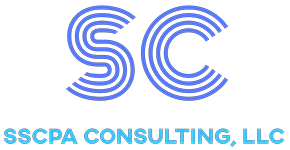
Optimizing Your Input to Maximize Your Output
“You are what you eat.” It’s an age-old adage we’ve all come to know. And while somewhat oversimplified, the philosophy behind this statement rings true. From the moment we’re born, food is fuel; nutrition is a fundamental commonality with the power to affect us all. It can be easy to make the connections between the importance of nutrition and performance of our bodies, but few realize how responsible good nutrition is for the developed, functioning brain. Let’s zoom in and examine how individual nutrients feed our brains from pre-birth to adulthood:
Fetal brain development is dependent on micronutrients like folic acid, which is responsible the proper formation of the neural tubes. EHA and DHA, fatty acids, are critical in neurogenesis and neural migration, as well as key processes like sight and mediating attention. Iron, zinc, and iodine are just a few other minerals which contribute to brain development, and growth throughout the life span(1).
In early development, the macronutrients are key. Healthy young brains require ample amounts of fat and protein, as well as carbohydrates; the micronutrients are still important in the stage, as well. A balanced diet typically provides all these nutrients in the quantities required. Hence why the foundation to good health is a varied, simple, balanced assortment of fruits, vegetables, whole grains, and lean proteins.
Later in life, all these nutrients are important for maintaining a healthy brain and body. However, the brain’s primary energy source shifts from fat to carbohydrates as we age. It is very difficult to have a fully-functioning brain without adequate carbohydrate consumption, ideally from whole grain sources at least half the time. Zooming back out on the whole body, we often note an increase in irritability and decrease in attention span when restricted in any food group. We’ve all experienced that “hunger fog,” or in more severe cases, “hanger.” Our primitive brains take over when we are lacking in basic needs, such as food, and redirects energy and focus to fundamental functions and fulfilling needs. Simply put, hunger holds us back—whether it is self-imposed or a consequence of circumstance. The simple intervention of eating results in improved cognition, higher test scores, and better psychosocial regulation (2). Therefore, it is as important to be well-fed as you are well-read at each stage of the education process.
As you reflect on your own relationship with nutrition and your brain, it may seem like a daunting place to start, or a minor blip on the self-improvement list. For the best path to success in this arena, I urge you to discard any notions you’ve pricked up that paint nutrition as exclusive, expensive, time-consuming, or elite. If something sounds too good to be true, it likely is. Turn to credentialed professionals (such as Registered Dietitians—RD/RDNs), evidenced-based, peer reviewed articles, and scientific organizations (such as the Academy of Nutrition and Dietetics). The best kept secret that most scholars and professionals know is that good nutrition should be affordable, attainable, and approachable. It comprises the basic principles you likely already suspect: eat from the 5 food groups, find time for joyful movement, and hydrate with water. Yes, in most cases, it really is that easy!
The HELP Approach is proud to offer nutrition services from trained specialists to help you learn person-centered strategies to put good in and get good out. Your work, your body, and your brain will thank you! Join our upcoming retreat to learn more. Click here to contact us today


No Comments